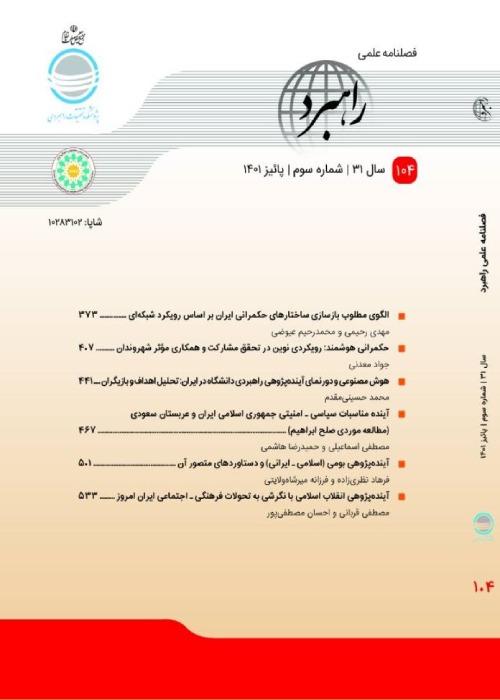Change in US Perception of Threat in Afghanistan and Strategic Implications for Iran
The United States withdrew its troops from Afghanistan after reaching an agreement with the Taliban in Doha. This is while the US invaded and occupied Afghanistan in 2001 under the global war on terror policy and so as to overthrow the Taliban led government. Since its invasion of Afghanistan, the United States, in six phases, has adjusted its policy toward the country, and in particular toward the Taliban which has been on the US list of enemies for many years. But the recent agreement with the movement, which means a transition from a confrontation strategy to a policy of engagement with the Taliban, shows a change in the US perception of threat in Afghanistan. This shift in US perception has strategic and security-related implications for Iran, a neighboring country to Afghanistan. Therefore, this study seeks to answer the main question of what strategic consequences the change in the US perception of threat in Afghanistan has had for Iran, especially in the field of security. In this paper, due to the complex nature of the subject, a combination of exploratory and normative methods has been used. A Combination of international relations theories, in particular the theory of Threat Perception and research methods including trend analysis and scenario writing, have helped consider and extract various and intervening components in the current research. The findings of the study show that the United States withdrew from Afghanistan following a change in its perception, and facilitated the rise of the Taliban. Although Tehran has been interacting with the Taliban, it is unsure if the behavior of the movement will be predictable or not. Tehran may be concerned that the Taliban could act as a proxy for some regional and extra-regional powers and endanger the security interests of the Islamic Republic of Iran. In addition, Iran has serious concerns about the possibility of the emergence of extremist and terrorist groups in Afghanistan. One of Tehran's concerns is that the US deal with the Taliban will affect the quality of the movement's interaction with Iran in the future and turn Afghanistan into a new platform for pressuring Iran in the field of security. In particular, Afghanistan shares more than 900 kilometers of border with Iran, and any insecurity or infiltration by the Taliban or other groups can have a direct impact on Iran's national security. The absolute rule of the Taliban in Afghanistan and the coexistence of Tehran with it can also cause dissatisfaction among a significant number of Afghan refugees or migrants in Iran.
- حق عضویت دریافتی صرف حمایت از نشریات عضو و نگهداری، تکمیل و توسعه مگیران میشود.
- پرداخت حق اشتراک و دانلود مقالات اجازه بازنشر آن در سایر رسانههای چاپی و دیجیتال را به کاربر نمیدهد.


